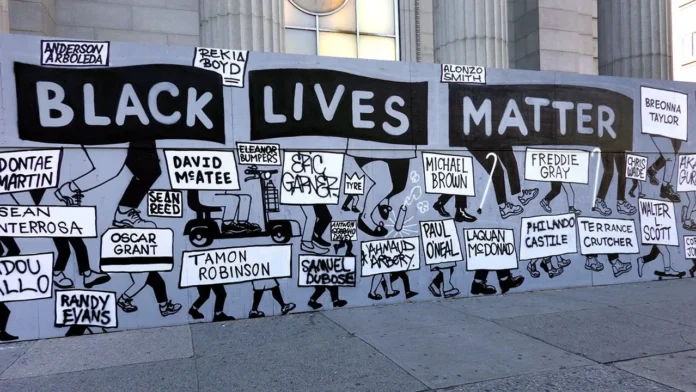
“In July 2013, activists first used the #BlackLivesMatter hashtag to spark conversation about racism, violence and the criminal justice system following George Zimmerman’s acquittal in the shooting death of Trayvon Martin in Sanford, Florida” and “Ten years later, Black Lives Matter stands as a model of a new generation of social movements intrinsically linked to social media” (Bestvater, et al., 2023). This can be seen by the peak of 1.2 million mentions of Black Lives Matter in one day on Twitter in May 2020 (Bestvater, et al., 2023). The national news and existing conversations around police brutality on digital platforms made politics start to belong and thrive on social media platforms.
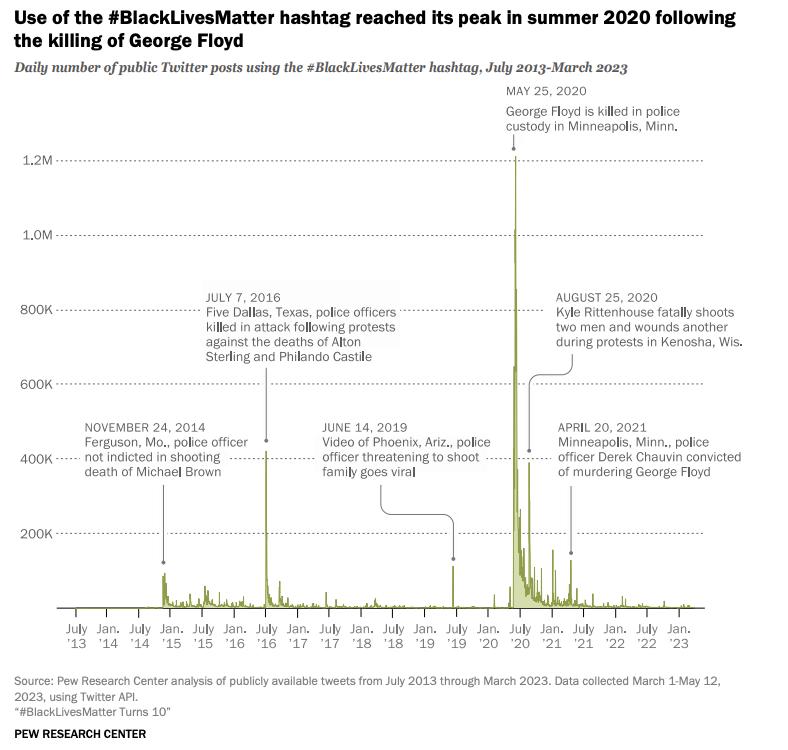
A survey of “5,101 U.S. adults from May 15 to 21, 2023” was conducted and “it asked about Americans’ political activity on social media, and their views on social media’s role in national conversations about race and racial inequality” (Bestvater, et al., 2023). “The survey finds that exposure to Black Lives Matter on social media is widespread. Fully 77% of social media users say they have come across content related to Black Lives Matter on these sites. And this is true for majorities of users across most demographic groups” (Bestvater, et al., 2023).
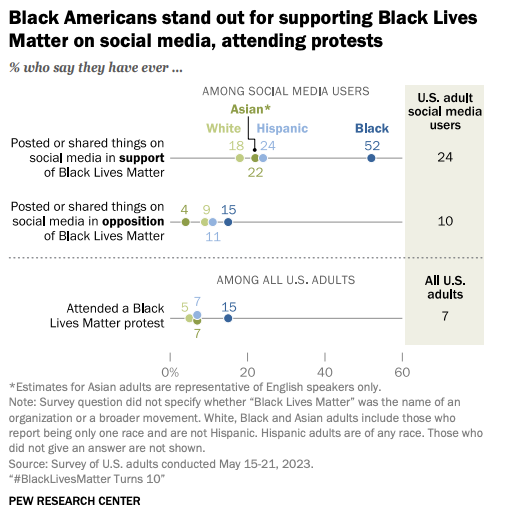
Some notable statistics from this survey are that “24% of social media users say they have ever posted or shared things in support of Black Lives Matter” and “10% of users say that they have done so in opposition” (Bestvater, et al., 2023). This demonstrates that about 34% of social media users have actively posted and joined political conversations on social media.
Although this survey can not trace the success of the Black Lives Matter movement solely to social media, it is notable that social media was used and that three years “following the murder of George Floyd, an 81% majority of Americans believe police violence against Black people in the U.S. is a problem” (Bestvater, et al., 2023).
If we continue to look at social media and traditional news outlets, it is seen that the 81% of supporters see social media “as a more effective way to shed light on police violence against Black people than news outlets” and this could be seen across demographics (Bestvater, et al., 2023).
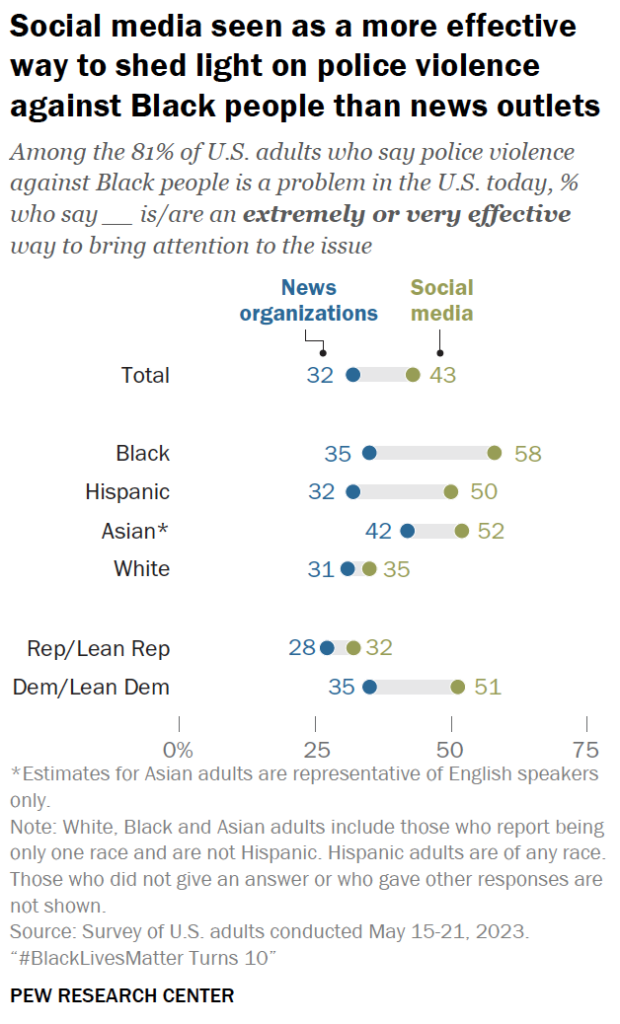
“Many Americans acknowledge how social media can be helpful in raising awareness, saying the following statements describe social media very or somewhat well:
- 67% say “social media highlights important issues that might not get a lot of attention otherwise”;
- 67% say “social media helps give a voice to underrepresented groups”;
- 47% say “social media make it easier to hold powerful people accountable” (Bestvater, et al., 2023).
But larger shares believe these platforms can be a distraction and are ineffective:
- 82% say “social media distracts people from issues that are truly important”;
- 76% say “social media makes people think they’re making a difference when they really aren’t” (Bestvater, et al., 2023).
“This survey also asked about five specific activities people may have recently participated in on social media, and it finds that some activities are more common than others. Among U.S. social media users, in the past year:” (Bestvater, et al., 2023).
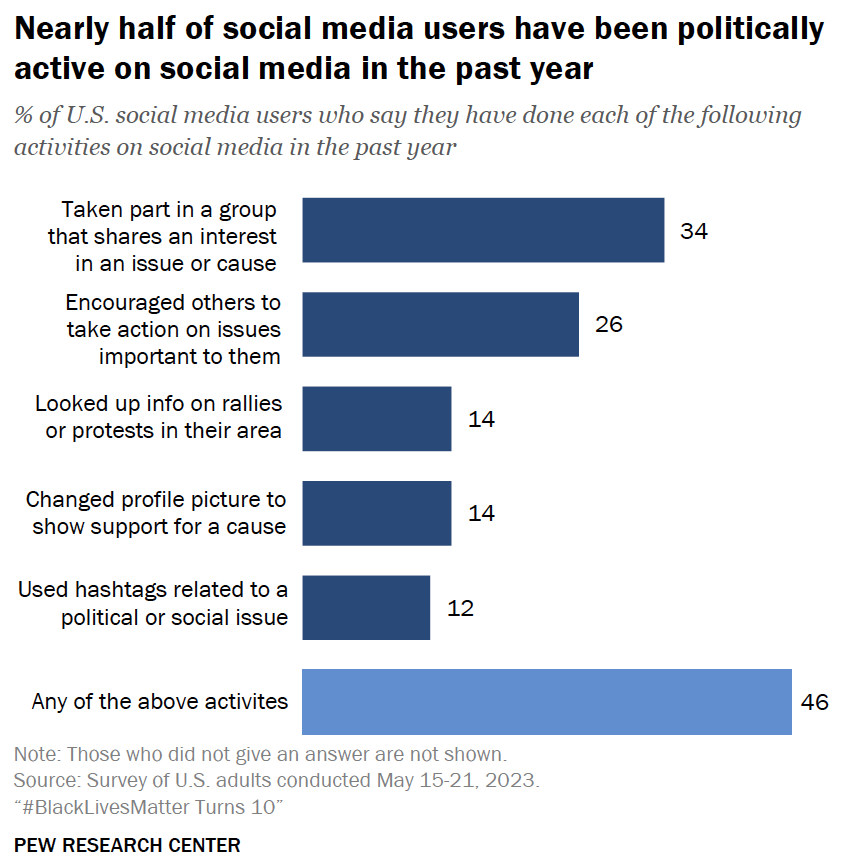
“From posting hashtags to finding like-minded communities, social media has transformed where, when and how people engage with civic and political activities” (Bestvater, et al., 2023). In this new emerging field of social media political spheres, there is great potential for creating communities and sharing information in ways to better the societies we all live in. In addition to connecting you with people near you, social media works to connect people all around the globe. Social media has become a space for global politics, and there is no making that space for politics go away, so how can it become even more effective at raising awareness? How can social media create communities that build collective action towards the greater good? And how do we create this space for political discourse on social media while still keeping the integrity of what a social media platform is?
Driving political forces in social media can help change our governmental policies and perspectives while putting pressure on politicians to listen to the demands of their constituents. This can be seen through the Black Lives Matter movement and the current urgency to help reduce police brutality in our communities. This form of political engagement is affecting where governmental money goes and in the case of Black Lives Matter, it is moving towards the goal of defunding the police. This ability to bring about change in what we invest in as communities can help us create the world we want to see in regard to our financial systems and personal well-being.
References:
Bestvater, S., Gelles-Watnick, R., Odabas, M., Anderson, M., & Smith, A. (2023 June 29). #BlackLivesMatter Turns 10. Pew Research Center. https://www.pewresearch.org/internet/2023/06/29/blacklivesmatter-turns-10/



